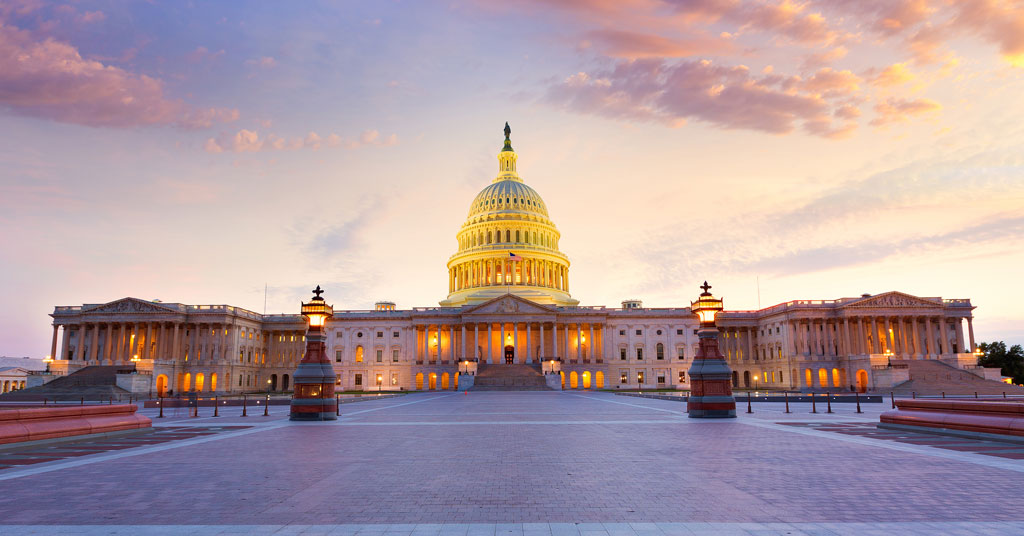Is the Election Cycle Effect on Commercial Real Estate Overblown?

As the election cycle gears up, the narrative around its impact on commercial real estate (CRE) often takes on a tone of cautious anticipation. While everyone is bracing for what’s commonly perceived as a volatile period ahead, the news cycle is flourishing with “he saids, she saids.” Yet, if we peel back the layers, the anxiety might seem a tad overblown.
No one denies that election years come with their share of uncertainties, but let’s dissect why the election-induced panic in the CRE market could be more of a myth than a matter of fact, and why savvy franchisees might want to rethink their strategy.
Is it all just smoke?
The prevailing wisdom suggests that as elections approach, uncertainty about future government policies causes a slowdown in CRE transactions. Historically, the market tends to cool off about 10 months before the election, with landlords and tenants alike pausing big moves until the political dust settles. But here’s the kicker: despite this slowdown, property prices and lease rates tend to hold steady, or even inch up, thanks to enduring demand and limited supply of prime real estate.
Now, you might ask, why the hesitation if prices remain stable? It’s the specter of change that looms large—potential shifts in everything from tax laws to economic policies. The reality is, however, that significant policy changes that materially affect the CRE sector are rare, regardless of which party takes office. For example, the headlines have suggested the 1031 exchange is at risk of being eliminated—probably since its inception in 1921. More often than not, the regulatory environment remains relatively stable, with any adjustments tending to be gradual rather than revolutionary.
Looking at the data, both Democratic and Republican administrations have seen periods of economic growth and stability that benefit CRE markets. Major upheavals are uncommon, and the fundamentals of good real estate investment—location, quality, and demand—tend to have more enduring impacts than the transient anxieties of election seasons.
Irrespective of the party in power, urbanization continues, infrastructural developments progress, and the demographic trends that drive demand for commercial spaces persist. The focus perhaps should shift from who’s in office to broader economic indicators and market fundamentals that have a more direct and lasting impact on CRE.
A call for a new strategy
So, what does this mean for franchisees and franchisors in the thick of strategizing for the future? It might be time for them to recalibrate their approach to election years. Rather than pulling back during what’s perceived as uncertain times, consider maintaining—or even increasing—market engagement based on a well-rounded analysis of market conditions, rather than the political climate.
While others are holding back in the run-up to elections because of perceived risks, why not leverage this as a strategic window to secure better deals and favorable terms? This contrarian approach isn’t just about being bold—it’s about being smart and recognizing that the real risk might actually lie in missing out on opportunities because of unfounded fears.
Navigating beyond the noise
While the election cycle can introduce a temporary climate of uncertainty in the CRE market, a deeper dive into historical trends and policy impacts reveals that these periods may not warrant the level of caution they often provoke. For franchisees and franchisors, staying informed, focusing on the fundamentals, and perhaps taking a contrarian approach during election cycles could turn conventional wisdom on its head and open up new avenues for growth and profitability.
After all, in the world of real estate, as in politics, sometimes the best move is the one nobody else is brave enough to make.
Jason Fefer is an associate director of Marcus & Millichap’s Net Leased Property Group on a large team alongside his partners Robert Narchi and Tyler Bindi. They structure sale-leasebacks and negotiate leases on behalf of some of the largest franchisees across all sectors including the restaurant, automotive, and retail space. He can be reached at 818-669-2388 or [email protected].
Share this Feature
Recommended Reading:
| ADVERTISE | SPONSORED CONTENT |
FRANCHISE TOPICS
- Multi-Unit Franchising
- Get Started in Franchising
- Franchise Growth
- Franchise Operations
- Open New Units
- Franchise Leadership
- Franchise Marketing
- Technology
- Franchise Law
- Franchise Awards
- Franchise Rankings
- Franchise Trends
- Franchise Development
- Featured Franchise Stories
| ADVERTISE | SPONSORED CONTENT |

$50,000
$150,000





 The multi-unit franchise opportunities listed above are not related to or endorsed by Multi-Unit Franchisee or Franchise Update Media Group. We are not engaged in, supporting, or endorsing any specific franchise, business opportunity, company or individual. No statement in this site is to be construed as a recommendation. We encourage prospective franchise buyers to perform extensive due diligence when considering a franchise opportunity.
The multi-unit franchise opportunities listed above are not related to or endorsed by Multi-Unit Franchisee or Franchise Update Media Group. We are not engaged in, supporting, or endorsing any specific franchise, business opportunity, company or individual. No statement in this site is to be construed as a recommendation. We encourage prospective franchise buyers to perform extensive due diligence when considering a franchise opportunity.